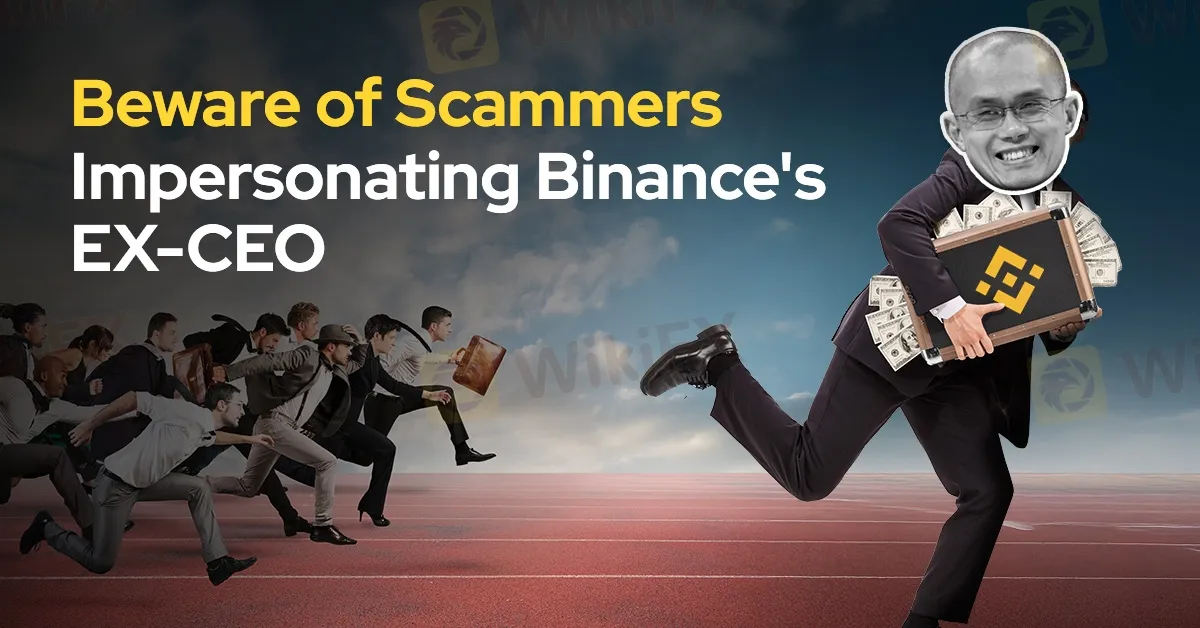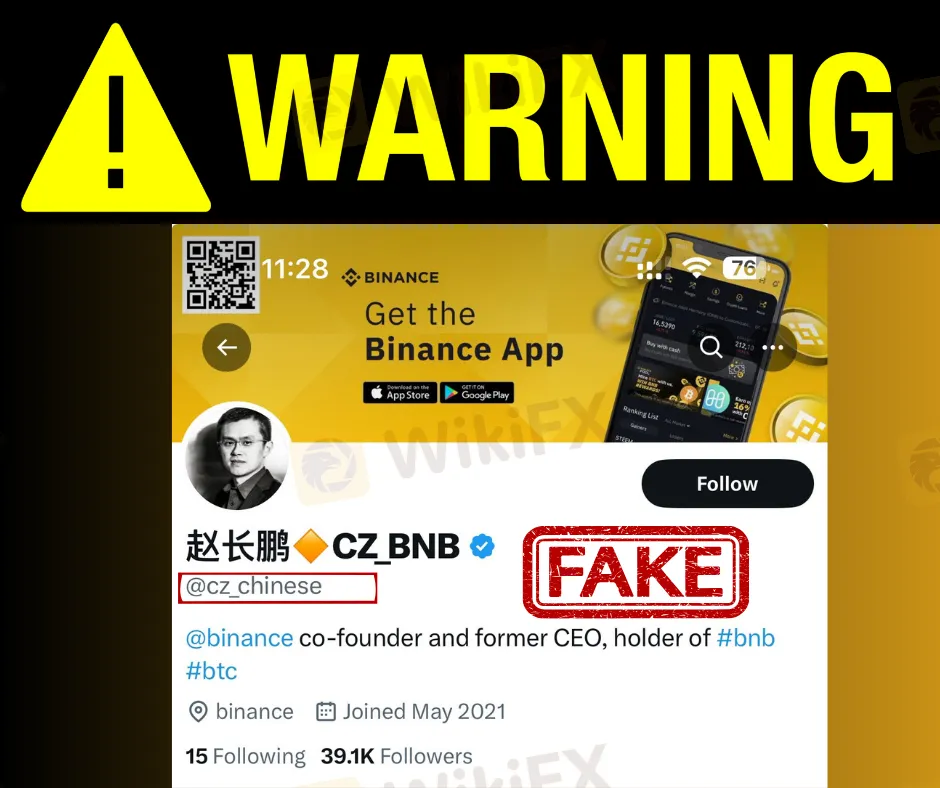简体中文
繁體中文
English
Pусский
日本語
ภาษาไทย
Tiếng Việt
Bahasa Indonesia
Español
हिन्दी
Filippiiniläinen
Français
Deutsch
Português
Türkçe
한국어
العربية
Beware of Scammers Impersonating Binance's EX-CEO
Abstract:Changpeng Zhao, co-founder and former CEO of Binance, has once again voiced concerns over a growing issue of himself on Elon Musk's social media platform, X (formerly Twitter)..

Changpeng Zhao, co-founder and former CEO of Binance, has once again voiced concerns over a growing issue on Elon Musk's social media platform, X (formerly Twitter). Fake accounts impersonating Zhao have proliferated on the platform, leading him to issue a public warning to the crypto community. He stressed that his official account is @cz_binance and any others are likely scams. This alert follows a broader rise in deepfake scams that use Zhaos likeness to promote fraudulent tokens across various platforms.

Zhao‘s frustration with X comes as he continues to push for more effective action against these fraudulent activities. He called for the platform to take greater steps in eliminating fake accounts and protecting users, encouraging his followers to report any impersonators they come across. This is not Zhao’s first encounter with impersonation scams. Just a week earlier, he warned about deepfake videos circulating online, falsely showing him promoting different cryptocurrencies. In response to a concerned follower, Zhao clarified that he had never endorsed the coins featured in the videos.

The surge in digital scams using fake identities and deepfake technology is not limited to Zhao. Ripple CEO Brad Garlinghouse and other high-profile figures in the crypto industry have also been targeted, while celebrities such as Donald Trump and Taylor Swift have similarly fallen victim to these AI-generated fraud schemes. Deepfakes, which use artificial intelligence to create highly realistic videos mimicking real people, have emerged as a significant threat on social media platforms.
In response to these growing concerns, law enforcement agencies have also taken action. On August 1, 2024, the FBI issued a warning about scammers impersonating employees of cryptocurrency exchanges. These criminals often contact their targets via calls and messages, pretending to be representatives of legitimate crypto companies, and steal funds once they gain access to victims financial information.
Elon Musk, who purchased X in 2022, has made several promises to combat the platforms bot problem. He pledged to “defeat the spam bots or die trying” and introduced X Premium (formerly Twitter Blue), a subscription-based model intended to reduce the number of fake accounts and bots. However, despite these measures, critics argue that scammers are still finding ways to bypass the paywall, continuing to operate on the platform. Recent research from Clemson University revealed that X continues to host a substantial number of AI-powered accounts posing as real users. These accounts have been involved in political propaganda, with many promoting Republican candidates in the U.S.

Disclaimer:
The views in this article only represent the author's personal views, and do not constitute investment advice on this platform. This platform does not guarantee the accuracy, completeness and timeliness of the information in the article, and will not be liable for any loss caused by the use of or reliance on the information in the article.
Read more

Forex Brokers vs. Crypto Exchanges: Which Is Safer for Traders?
The world of trading offers two major platforms: forex brokers and cryptocurrency exchanges. Both provide opportunities, but they also come with risks. Traders often wonder which is the safer option. While some lean towards traditional forex brokers, others trust the decentralised nature of crypto exchanges. Let us know if you are #TeamForex or #TeamCrypto!

MoonPay Acquires Helio Pay for $170M to Expand Crypto E-Commerce
MoonPay acquires Helio Pay for $170M to enhance crypto e-commerce solutions. Discover how this deal expands crypto payments for merchants globally.

DuckChain: Everything to Know About $DUCK Token and Listing
Breaking news: DuckChain announces $DUCK token listing, unveiling innovative features and eco-friendly blockchain solutions for decentralized finance.

Cryptocurrencies: A Financial Revolution or a Double-Edged Sword?
The rise of cryptocurrencies and blockchain technology has been compared to transformative milestones such as the creation of money and the advent of the internet. These innovations are reshaping the way assets are valued and traded, pushing the boundaries of traditional finance. However, as with any disruptive technology, the journey is fraught with complexities that demand careful consideration.
WikiFX Broker
Latest News
Wolf Capital Exposed: The $9.4M Crypto Ponzi Scheme that Lured Thousands with False Promises
Confirmed! US December non-farm payroll exceeded expectations
Spain plans 100% tax for homes bought by non-EU residents
90 Days, Rs.1800 Cr. Saved! MHA Reveals
The Yuan’s Struggle: How China Plans to Protect Its Economy
LiteForex Celebrates Its 20th Anniversary with a $1,000,000 Challenge
400 Foreign Nationals Arrested in Crypto Scam Raid in Manila
Singapore Blocks Polymarket Access, Following U.S. and France
OneZero Collaborates with Ladies Professional Golf Association (LPGA)
Housewives Scammed of Over RM1 Million in Gold Investment Fraud
Currency Calculator






